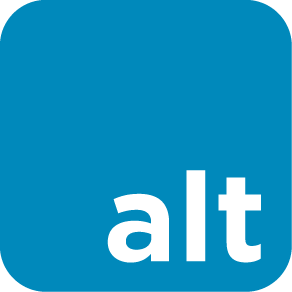 A Silicon Valley startup that wants to power the future of personalized learning plans to introduce its system in three independent private schools next school year.
A Silicon Valley startup that wants to power the future of personalized learning plans to introduce its system in three independent private schools next school year.
Two of those schools are in South Florida.
Over the past two years, AltSchool has picked up national buzz, raised more than $100 million in venture capital funding and opened a network of private microschools in Chicago, New York and the San Francisco Bay area.
Its first round of “partner schools” are an early step toward the company’s ultimate ambition, which founder Max Ventilla has described as a “new model for what education should be in the 21st century” — one that could eventually serve all kinds of students, in all kinds of schools, all over the world.
For now, though, the company’s schools cater to a narrower niche. They charge more than $20,000 in annual tuition, and while financial assistance is available, it’s safe to say their demographics don’t match those of the national public-school population.
The two South Florida schools set to join the network definitely seem to jibe with the AltSchool approach, which Ventilla has dubbed “Montessori 2.0, a hundred years later, enabled by technology.” They’re also both relatively new, and relatively small. (Neither plans to grow to more than a few dozen students).
Company spokeswoman Maggie Quale said the similarities are no accident. With its first round of partners, she said, AltSchool wants to change as few variables as possible. Next school year will be the first in which its network will include schools the company doesn’t run itself. In the years that follow, it hopes to change more variables, and eventually move into schools that serve more disadvantaged students, including traditional and charter public schools.
The Greene School, which opened in September in West Palm Beach, was among the three schools chosen by AltSchool from a pool of more than 200 applicants. It features a “maker space” at the center of its facility. It equips its students with iPads and Chromebooks. It incorporates robotics and engineering into its core curriculum.
“We really encourage our students to tinker, and to use their own curiosity,” Dorothy Hutcheson, the head of school, said in interview.
Hutcheson said the school became interested in AltSchool after its founder, billionaire real estate mogul Jeff Greene, visited the company’s San Francisco headquarters and came back singing its praises. The school caters to academically advanced youngsters, which means teachers constantly have to devise assignments that keep individual students challenged.
Hutcheson said two AltSchool features will help with that task. One, known as Playlist, will help teachers tee up a customized sequence of activities for each student. The other, Portrait, gives teachers and parents a detailed picture of how a student is doing, and updates it in real time.
The other Florida partner school, Miami Beach’s Temple Beth Sholom Day School, is a faith-based institution that draws heavily on the Reggio Emilia approach, which was developed in post-World War II Italy. Here’s how the school describes its model:
Our learners become the co-designers for thinking and learning experiences around things that matter to them! Within our social constructivist learning environments, created to empower learners to formulate questions and to develop theories individually and collectively, learners go deeper into long term studies around big ideas and intents.
Failure is seen as an opportunity to learn and an invitation to think more deeply about an experience. Our learners embrace disrupting the status quo to find new meaning and develop new ways of seeing things. Change agents in the making!
We view our families as essential partners along their children’s educational journey. Together we look to hold to the highest of academic standards while remaining open to seeing what our 21st century learners will need to succeed in our ever-changing world.
Children help chart their own educational course, and constantly reflect on their progress. And parents are deeply involved. This requires constant communication and meticulous note-taking by teachers.
“With the Alt platform and the apps that they have created, this will become very easy from a teacher’s perspective,” said Margie Zeskind, the school’s director.
In other words, the technology will mostly appear behind the scenes, facilitating communication with parents and helping teachers tailor “learning experiences” for each child. Joining forces with a tech company won’t mean students spend more time in front of screens. In a school that emphasizes authentic learning, she said the technology will provide a “beautiful platform that supports who we are.”
It’s possible to imagine this same platform supporting entrepreneurial educators who launch schools that don’t charge tens of thousands of dollars in annual tuition, that cater to disavantaged students, or that focus on children who struggle academically. And research by the Bill and Melinda Gates Foundation suggests schools that serve those students can see real academic benefits from a shift to personalized learning.
Quale, the AltSchool spokeswoman, said the company understands the importance of incorporating those schools into its network, and intends to do so in the next few years, while it’s still in its crucial early stages of development.
“You need those experiences to build something that works for everyone,” she said. In the long run, she added, “all of us will have failed” if the platform can’t work for all students. “That is the entire purpose of why we’re doing this.”
Hutcheson, the head of the Greene School, said her institution doesn’t cater exclusively to “the rarified few.” Financial aid packages help place it within reach of middle-income families. And, she said, she hopes her school will eventually become part of a network of connected educators who help improve schooling for everyone.
“I think anything that can replicate excellence in education, we’re all for,” she said. “It’s our duty, really, to spread that to as many schools as we can.”


